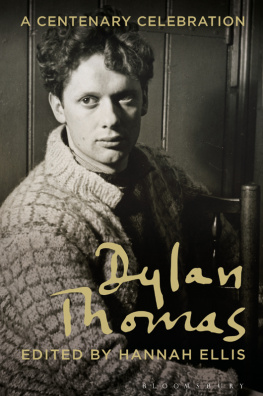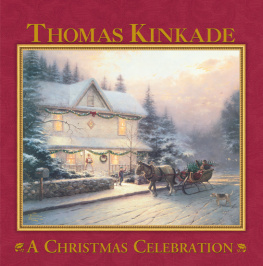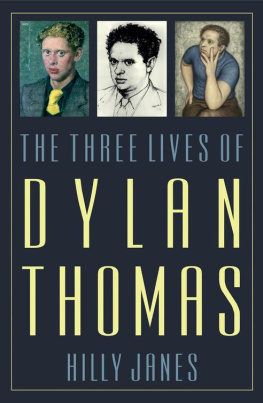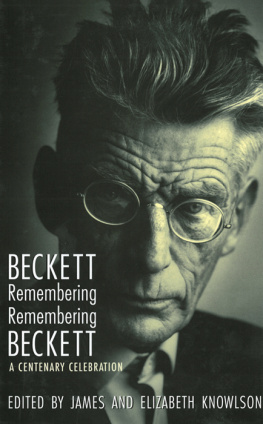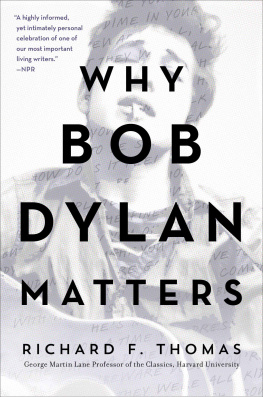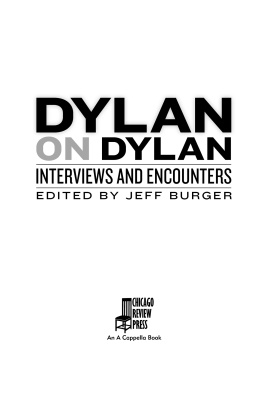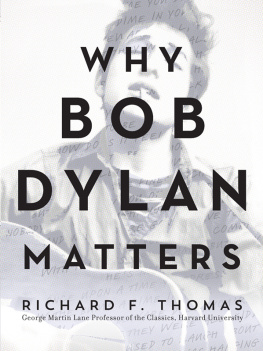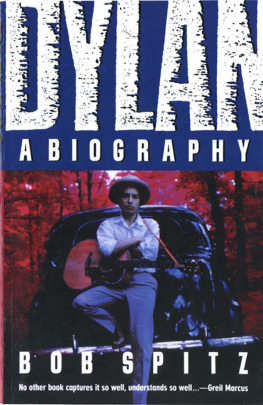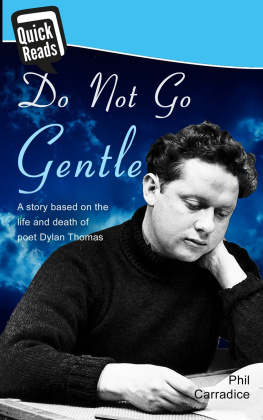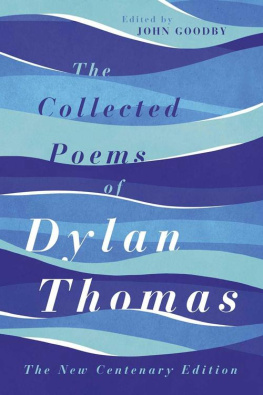DYLAN THOMAS
A CENTENARY CELEBRATION
Dylan Thomas
A Centenary Celebration
EDITED BY HANNAH ELLIS

First published in Great Britain 2014
This collection and editorial material copyright Hannah Ellis, 2014
Copyright in individual chapters is held by the contributors
The moral right of the author has been asserted
Extracts from the works of Dylan Thomas are reprinted by kind permission of the Trustees for the Copyrights of Dylan Thomas and New Directions Publishing
Artwork and endpaper design by Sir Peter Blake reproduced by kind permission of the artist and Enitharmon Editions
Artwork by Peter Ross reproduced by kind permission of the artist
Extract from (About) 1949, Paul Ferris, 2014
Dylan the Eavesdrop from That Awkward Age by Roger McGough reproduced by permission of Penguin Books Ltd and Roger McGough, 2009
All royalties from this publication will be donated to Literature Wales www.literaturewales.org
No part of this book may be used or reproduced in any manner whatsoever without written permission from the Publisher except in the case of brief quotations embodied in critical articles or reviews. Every reasonable effort has been made to trace copyright holders of material reproduced in this book, but if any have been inadvertently overlooked the Publishers would be glad to hear from them.
A Continuum book
Bloomsbury Publishing Plc
50 Bedford Square
London WC1B 3DP
www.bloomsbury.com
Bloomsbury is a registered trademark of Bloomsbury Publishing Plc
Bloomsbury Publishing, London, New Delhi, New York and Sydney
A CIP record for this book is available from the British Library.
ISBN: ePub: 9781472903105
Typeset by Fakenham Prepress Solutions, Fakenham, Norfolk NR21 8NN
I remember my brother, Nigel, first introduced me to Dylan Thomas. I was twelve and he must have been fourteen-and-a-half, when he said to me the BBC were going to present an historic broadcast that evening. It would feature Richard Burton (whom I had never heard of) and it was written by Dylan Thomas (whom I equally had never heard of) and it was called Under Milk Wood (a title that meant nothing to me at all). It was 25 January 1954, two months after Dylans death, though I didnt know it at the time.
My parents didnt want to listen, and as the radio was in the dining room, we were left in possession of it. I remember my brothers reverential silence as the play for voices started, and the rich full tones of Richard Burtons voice filled the loudspeaker bursting out in a glorious inundation of resonance.
I started out sitting at the dining room table, but by halfway through (or what seemed to me to be halfway through) I was under the table in a delight of table-legs. Maybe I managed to listen until the little town of Llareggub wakes up. Maybe, under my brothers watchful eye, I lasted out the whole broadcast. I cant remember, but I do remember the atmosphere and the characters. And the sheer joy of the words.
Listening to it or reading it now brings tears to my eyes. Its so perfect and yet so funny. I will lie by your side like the Sunday Roast, says Mr Mog Edwards to Myfanwy Price, although by the end of Under Milk Wood we learn that they live at the opposite ends of town, and neither have really any desire to be together. Other phrases have become part of my life from the description of Mr and Mrs Floyd, the cockle-pickers, sleeping together like two old kippers in a box to Gossamer Beynons lament: Ill never be refined if I twitch.
I would also like to celebrate the love expressed in the exchanges between Mr and Mrs Cherry Owen:
CHERRY OWEN:
I always say shes got two husbands,
FIRST VOICE:
says Cherry Owen,
CHERRY OWEN:
one drunk and one sober.
FIRST VOICE:
And Mrs Cherry simply says
MRS CHERRY OWEN:
And arent I a lucky woman? Because I love them both.
And likewise the exchanges between Mrs Beynon and Mr Beynon. I feel they really love each other, despite the spats I think she secretly likes being teased:
MRS BEYNON:
She likes the liver, Ben.
MR BEYNON:
She ought to do, Bess. Its her brothers.
MRS BEYNON (Screaming):
Oh, dyou hear that, Lily?
LILY SMALLS:
Yes, mum.
MRS BEYNON:
Were eating pusscat.
LILY SMALLS:
Yes, mum.
MRS BEYNON:
Oh, you cat-butcher!
MR BEYNON:
It was doctored, mind.
Since then Dylan Thomas became a part of my life. I guess I started reading his poems sometime later. I cant remember when, but they had an impact on me that no other poetry could have had. The earlier poems I found obscure but they thrilled me. No one was doing with words what Dylan Thomas was doing. He wrote: I should say I wanted to write poetry in the beginning because I had fallen in love with words The words alone. What the words stood for was of a very secondary importance Maybe that explains the obscurity of the early poems.
Dylan Thomas communicates his excitement at falling in love with words and words and words. I too loved at first sight Poem in October with its heron / Priested shore and its Through the parables / Of sun light. I too fell outright in love with Do not go gentle into that good night / Old age should burn and rave at close of day / Rage, rage against the dying of the light. And I too still love Fern Hill with its prophetic final lines: Oh as I was young and easy in the mercy of his means, / Time held me green and dying / Though I sang in my chains like the sea.
Reading Dylan Thomas is to celebrate life. To enter into a festival of words for their own sake. Dylan Thomas is a unique voice singing in his chains like the sea.
Dylan Thomas: A Centenary Celebration has been a labour of love for me, and has signified my own journey of discovery. It has been both exciting and scary finding out about my colourful and extraordinarily talented family.
The death of my mum five years ago, and the birth of my son not long after, have made me more aware of the importance of family, and learning where all our strengths and weaknesses come from. My voyage to learn more about my grandfather started by delving into biographies and quickly finding out that there was much more to understand about Dylan Thomas than the legend would have you believe. I discovered that realizing the truth was far more fascinating than accepting the myths. It was with increasing frustration that I found myself unable to stop the events of 1953 that ended in my grandfathers life being cut tragically short. The questions were endless. What if he had not been given the injection of morphine? What would an opera he planned to write with Stravinsky have been like? How would my mums life have been different? Would I even be here today?
With an element of embarrassment, I had to admit that I had not read my grandfathers work. What if I didnt like it? What if it was too difficult? So, it was with amazement I found myself reading beautiful and descriptive poetry, surreal and dark short stories, memories of Dylans childhood in Wales and passionate letters to family and friends. My sheer delight and enjoyment was followed by alarm. If I was only just finding out about the wonderful writing, there must be others of my generation who have not yet experienced it. I suddenly became very aware that I was incredibly lucky to be the granddaughter of not only a talented wordsmith, but also a sensational actor. Dylan could move audiences with powerful and thoughtful readings, and then, in an instant, cause the same group of people to roll about with laughter, with a quick and witty comment.
Next page
